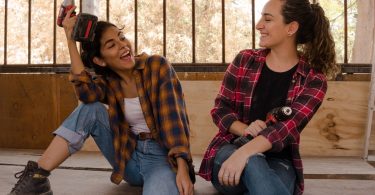Families come in all shapes and sizes. But that is the great thing about them. There is no ‘one size fits all’ for a family. The changes in today’s society have allowed us to create our own meanings of the word.
From an early age, I remember learning that families were based on the idea of love and mutual respect. It was one of the first lessons I learnt as a child and I believe it is something I will always stick to. I was brought up under the impression that my family was, and never will be, restricted to the people I am biologically connected with.
Each year thousands of young people across the country move away from their hometowns, leaving their parents behind, to start a new life in a new town or city. It is nearly two years ago that I was in that exact boat. Amongst feeling anxious and scared, I remember being lonely. I had never been so far away from home for such a long period of time. But that feeling quickly left me when I met my university friends, who over time, have become my second family.
My second family
Chelsea Scott was one of the first friends I made at university. When I asked for her opinion on families, she told me,
“To me, blood definitely doesn’t define family. I’ve made life-long friendships whilst at university and I would consider us a one big family. Family is about having mutual love and respect for one another, not just genes.”
Most people are lucky enough to have the experience of being in one family unit during their lifetime, yet I am fortunate enough to be able to say I have two. Two groups of people that I care for, and who in return, care for me. I may not share the same genes with one of them but that doesn’t mean our bond isn’t as strong. Do I have more love for a great-aunt I have met once or a friend who I see nearly everyday? Am I supposed to feel a stronger connection, just because we share the same blood? The answer, of course, is no. It would be silly of me to suggest it.

Author Richard Bach once said, “The bond that links your family is not one of blood but respect and joy in each other’s life. Rarely do members of one family grow up under the same roof.” And this is true for my situation. My university family and I may have been brought up in different situations with different accents and in completely different parts of the country but we still act as one big family. At times, we even take on the roles of our parents, checking we have eaten our fruit and veg and that we can get home safely. And we also take on the roles they shouldn’t have to, like holding their hair back after too many shots in the local bar. Chelsea refers to the family-like bond and love you form with your friends as ‘unconditional’. She believes, “When you go through all sorts of experiences together, both good and bad. When you live with someone especially, because you see them at their best and at their worst.”
When I was feeling homesick in my first university term, who did I turn to? The same people I would run to now when I have had a tough day. My university family is the one I lean on for support. They relate to my stresses and struggles, as we are going through the same experiences together. We are both young people, living in the 21st century, learning together.
Blood might decide who you are related to, but it is our decision who our family actually is. To me, and probably many others, your DNA doesn’t define your family – loyalty, love and trust does.








